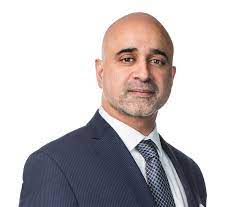The Impact of Technology on Neurology: Insights from Dr. Sunny Handa
Advancements in technology have revolutionized the field of neurology. From improved diagnostic tools to innovative treatments, technology has made it possible to better understand and treat neurological conditions. In this article, we will discuss the impact of technology on neurology and how it is changing the way we diagnose and treat neurological disorders. We will draw on the expertise of Dr Sunny Handa, a leading neurologist and researcher, to provide insights on the topic.
Introduction
Neurological disorders affect
millions of people worldwide, and many of these conditions are chronic and
debilitating. Technology has played a significant role in improving the
diagnosis and treatment of these conditions. Dr. Sunny Handa, a board-certified
neurologist and clinical researcher, has been at the forefront of this field.
In this article, we will discuss how technology has impacted neurology, drawing
on the insights of Dr. Handa.
Advancements in Imaging Technology
One of the most significant impacts
of technology on neurology has been in the field of imaging. Advances in
imaging technology have revolutionized the way we diagnose and treat
neurological conditions. Magnetic resonance imaging (MRI) and computed
tomography (CT) scans are two examples of imaging technology that have become
essential tools in neurology. These technologies have made it possible to
visualize the brain in a non-invasive manner, which has improved diagnostic
accuracy and treatment outcomes.
Dr. Handa explains that
"with the use of functional MRI (fMRI) and positron emission tomography
(PET) scans, we can see how the brain is functioning in real-time. This has led
to significant advancements in the diagnosis and treatment of neurological
conditions such as epilepsy, stroke, and Alzheimer's disease."
Telemedicine
The COVID-19 pandemic has
accelerated the adoption of telemedicine in neurology. Telemedicine allows
doctors to provide care remotely, using technology such as video conferencing
and remote monitoring. Dr. Handa explains that "telemedicine has been a
game-changer in neurology, especially during the pandemic. It has allowed us to
provide care to patients who cannot physically come to the clinic, and it has
reduced the risk of exposure to the virus."
Telemedicine has also improved
access to care for patients in rural or underserved areas, where access to
specialists may be limited. Dr. Handa notes that "telemedicine has made it
possible for us to reach patients who would otherwise not have access to
specialized neurological care."
Robotics and Neurosurgery
Advancements in robotics have
also had a significant impact on neurology. Robotic systems are now being used
in neurosurgery to perform minimally invasive procedures with greater
precision. Dr. Handa explains that "robotic-assisted surgery has
revolutionized the way we approach neurosurgery. It has made it possible to
perform complex procedures with greater accuracy and minimal
invasiveness."
Robotic systems can be used in a
range of neurosurgical procedures, including brain biopsies, deep brain
stimulation, and tumor removal. Dr. Handa notes that "these technologies
have improved patient outcomes, reduced complications, and shortened recovery
times."
Wearable Technology
Wearable technology has become
increasingly popular in recent years, and it has the potential to revolutionize
the way we monitor and manage neurological conditions. Devices such as
smartwatches and fitness trackers can track a range of physiological
parameters, including heart rate, blood pressure, and sleep patterns.
Dr. Handa explains that
"wearable technology has the potential to provide valuable insights into
the progression of neurological conditions. By tracking physiological
parameters, we can monitor disease progression and tailor treatment plans accordingly."
Conclusion
The impact of technology on
neurology has been significant and far-reaching. From improved imaging
technology to robotic-assisted surgery and telemedicine, technology has made it
possible to better understand, diagnose, and treat neurological conditions. Dr.
Sunny
Handa emphasizes that "technology has transformed the field of
neurology, allowing us to provide more personalized care and improve patient
outcomes.


Comments
Post a Comment